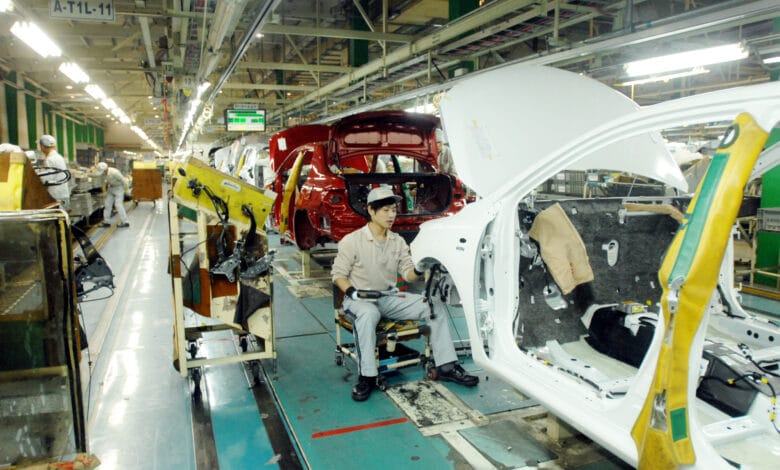
Stopped production lines in the automotive industry are nothing new since the beginning of the chip crisis. At Toyota, however, it was not a lack of semiconductors but a hacker attack that caused an unintentional production stop. The consequences are likely to be serious.
All factories are at a standstill
For Toyota, the super disaster has occurred. As a result of a devastating cyberattack, the Japanese automaker had to shut down its entire production. A total of 14 factories are affected. The company is likely to feel the economic consequences of the shutdown for quite some time. This becomes clear when you realize that a total of 13,000 Toyota, Hino and Daihatsu vehicles leave the production lines during normal daily operations. The really annoying thing about the whole misery is the fact that Toyota itself did not fall victim to the hacker attack at all. Rather, the cybercriminals have targeted a supplier of the Japanese car company.
Missing components cause standstill
Surprisingly, in Toyota’s now-disclosed problem, it is not the much-mentioned semiconductors that are missing. Instead, the shortage affects a very down-to-earth part of the vehicles. Conventional components such as car door panels are manufactured by the victim of the cyberattack, “Kojima Press Industries.” In their attack, the hackers targeted the communication channels between Toyota and its supplier. Since this was no longer possible or only possible to a limited extent, the Japanese company had to pull the ripcord.
To understand this, it is important to remember that modern automotive companies work according to the “just in time” principle. Here, orders for components are placed immediately prior to installation itself. The great advantage of this is that there is no need for large warehouses. Instead, the parts find their way into the vehicle immediately. However, since the agreement between Toyota and “Kojima Press Industries” was on hold, it was simply not possible to place orders at short notice. The temporary closure of the plants was the only correct consequence.
Substantial economic damage
Since not Toyota itself, but supplier “Kojima Press Industries” was the target of the cyberattack, only the latter has so far commented on the incident. In doing so, the company confirmed that a hacker attack had occurred:
“It is true that we have been affected by some kind of cyberattack. We are still confirming the damage and we are rushing to respond. The top priority is to get the Toyota production system back online as soon as possible.”
Every additional hour that Toyota’s production is on hold represents immense economic damage to Japan’s flagship company. After all, nearly 13,000 finished cars usually roll off the manufacturer’s production line during normal operations. With the factory lines at a standstill, the support of the employees is of course also not needed for the time being. Accordingly, Toyota has had to put nearly 70,000 workers on forced leave. When production can restart is still uncertain so far.
Wire pullers are unknown
As Japan has reaffirmed its closeness to the West in the context of the Ukraine war, Russia naturally moves into the circle of suspects as the mastermind of a cyberattack. After all, all major companies worldwide are currently at high risk of falling victim to a Russian-directed cyberattack. However, this is merely conjecture. In order to ensure that production can be restarted quickly, Japan’s politicians have now also been involved in the action. Together, the companies and the government want to ensure that Toyota can produce its vehicles again as quickly as possible.



